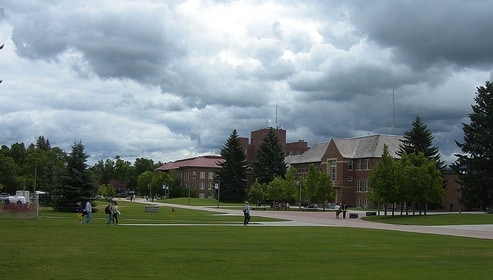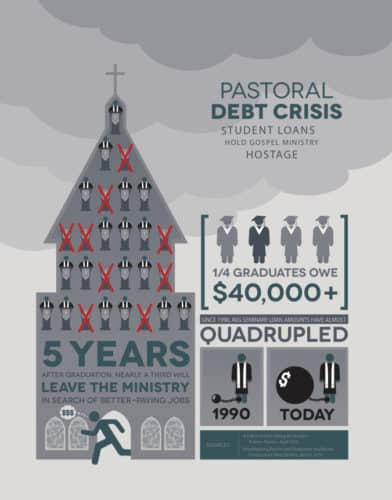This is part of a series: Learning from Large Cru Movements- a look at 8 of the largest Cru movements in the U.S. Read the Series intro here.
Overview of the Cru Movement at Montana State
Movement stats as of 2011
- 13,000 students enrolled at Montana State (3,500 in dorms)
- Typically 6-10 staff (that includes 0-3 interns)
- 335 students in Bible studies
- 425 at the weekly meeting
- 285 at Fall Retreat
- Bob Schwahn is the Director. He’s been on staff 19 years. 15 years at MSU (13 of those as Director). Came to Christ at MSU.
Movement History
- Since 1999, they’ve taken a movement from 50 to about 500 involved
- Since 2006 they’ve gone from 15 students living out Win/Build/Send to 150 this past year
- They’ve sent out staff to lead Cru ministries in Seattle and Portland
- What contributed to their growth [with some great candor]:
- Not sure!
- Our meeting was really cool, fun students involved in our ministry (great personalities involved who were cool and fun who were in the band or MC’s)
- Wow, this looks like a fun group
- I don’t think they necessarily were getting involved in a movement
- We were more about talking about the mission than doing it
- I don’t think I did a great job (I was just trying to keep my head above water) at thinking strategically
Key Points
- Even in the early days, when there were a lot of people coming, our “movement” was actually really pretty small — maybe 10-15 people who really got WBS, actively sharing their faith
- Our “movement” is now 125-150 people (students who are sharing their faith)
- What contributed to THAT growth (of your core)?
- 5 or 6 years ago we really began to take spiritual multiplication seriously and asked “Are we really preparing people for a lifetime of ministry?”
- We got dialed in on evangelism — which is really difficult to help staff remove everything off of their plates so they can focus on evangelism
- When we really set out to make spiritual multipliers/grandchildren, we found out, “this is slow!”
- It actually takes years
- “Less happens in one year, more happens in five years” from Jim Sylvester
- We have a big emphasis on encouraging our students to move back into the dorms (even in groups)
Success for Us
- We track/measure two things the most:
- How many people are actively involved in sharing their faith (that’s our top goal)
- We want 125-150 people who are regularly communicating their faith (at least once a month) — not just telling someone they’re a Christian but bringing people to a point of decision
- Multipliers/Spiritual grandchildren.
- Are there students involved in our ministry who are really helping students have a ministry?
- We’re pretty focused on it and work hard at it, but that number is pretty small
- 17 is the most we’ve ever seen — students who are shepherding people who are having a ministry
- We had 9 this year
- “The grandchild has to be sharing their faith” — the litmus test of the leader
What do staff focus on?
- Their primary job is to be in their target area, sharing their faith, with student leaders
- We call it “The Critical Event” — a trained person taking a non-trained person to share their faith
- Our staff share their faith A LOT
- That’s what we ask them to do, day in/day out
- Because they’re thinking multiplication, every appt they have to have a student with them (we think the best training for students is to watch someone else share their faith) as they share their faith
- It’s usually said “I’m pouring my life into someone” — but we say “I’m trying to pour my life through someone” — anything I do with a student, I ask them “who’s someone you can do this with?” or “who’s someone you could tell about this?”
- Every staff have a residence hall they’re focusing on (focusing on freshmen)
- Every staff person is over prayer, outreach, etc
- Every staff is a MTL over their area:
- They build a team of leaders to reach their area
- “How are we going to reach this dorm?”
- Each area does their own prayer, socials, outreaches, etc
- As we look at why staff say they don’t share their faith, they legitimately may not have time to do it because they have so much on their plates
- They’re spending all their time doing socials, planning meetings
- It’s unfair to ask staff to do everything they’re doing AND share their faith
- How do I take those things off their plate?
- Students will figure out how to do socials, what they’re not going to figure out is how to build an evangelistic movement and share their faith
- We just decided, “how are we going to focus on this one thing”
- And what do we need to say no to (aggressively)?
- We made the decision to relentlessly take things off their plate that are not
- Evangelism
- Following up New Believers
- The reason we see a lot of students come on staff, is they’ve gotten to share their faith a ton as students and seen life change, and they think “why would I not want to do that for my job?”
Ministry Structure
Leadership Development/Training
- We used to have a weekly leadership meeting but we killed it
- But this last year we didn’t have a single leadership meeting
- We have one overnight leadership meeting per semester
- Each staff person does leadership training in their own area
- We do some training corporately in how to share their faith — the week after the fall retreat
- We essentially make it a part of the fall retreat, “we’re going to come back and get trained and get mobilized”
- Monday right after fall retreat (for 2 hours)— students are at the peak of their excitement about who we are and what we are about
- The main goals are:
- Teach them the Knowing God Personally booklet
- Get them to really think thru how to ask question to get into spiritual conversations
- Assign them to a staff or student leader who are very skilled at sharing their faith (who will then take them out sharing 3-4 times in the following weeks)
- Apart from modeling, they’re not going to get it (how to share their faith), so we don’t do much in the classroom
- We give them just enough to get them out there and get killed : )
Committees
- We don’t have any committees (prayer, evangelism, etc)
- Everything just operates in areas — each area/dorm does their own prayer, socials, outreach, etc.
Weekly Meeting
- We have a weekly meeting team but staff don’t meet with those students
- They do everything
- We just provide the teachers
Bible Study Structure
- 45 small groups
- about 335 people in small groups (early in the school year)
- Studies are both student and staff led
- They’re all team led (2-4 leaders)
- One facilitates content, the other 2 or 3 think thru how to meet personally with each student how to share their faith
What are your biggest takeaways from learning about the Cru ministry at Montana State?
photo courtesy of jimmywayne


